Automotive Battery Testing
Accelerate your automotive battery validation process with comprehensive testing that ensures safety and performance while meeting global and OEM-specific standards. Our advanced facilities support complete testing across all automotive battery components - from cells to complete EV packs - delivering the detailed data, certification support, and advisory expertise you need to launch innovative products vehicles with confidence and gain a competitive edge.
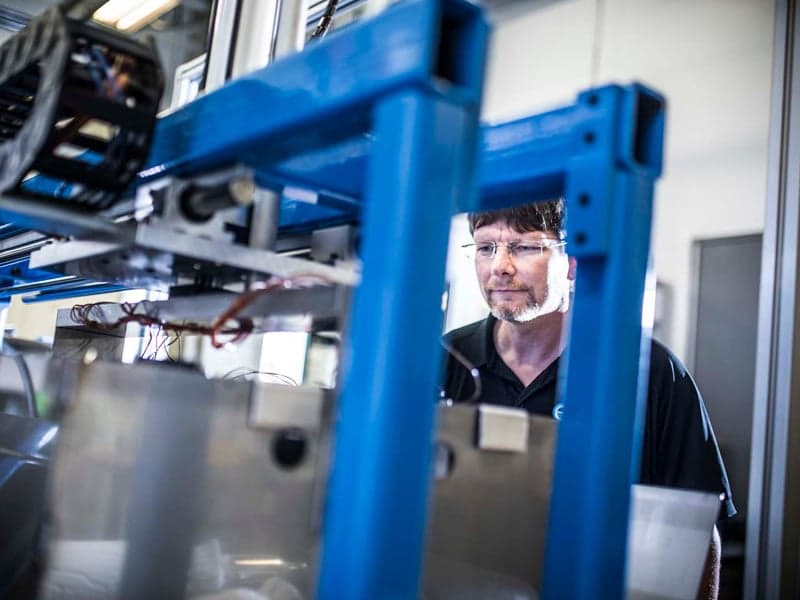
What is Automotive & EV Battery Testing at Element?
Electric Vehicle (EV) and Hybrid-Electric Vehicle (HEV) battery testing evaluates the safety, performance, and reliability of battery systems under real-world conditions. At Element, we provide comprehensive testing services for lithium-ion and lithium metal batteries of all formats and configurations. Our global laboratories combine environmental and mechanical testing with advanced monitoring capabilities - including charge/discharge cycling, temperature control, pressure monitoring, and detailed data collection - to validate your products against international standards and manufacturer-specific requirements.

What Can Element Offer You For Automotive Battery Testing?
Key tests offered
Key tests offered
At Element, we deliver extensive environmental and mechanical testing combined with advanced monitoring capabilities to ensure your products meet the highest standards of safety and performance. Our comprehensive testing includes:
- Charge/discharge cycling
- Temperature monitoring and control
- Pressure monitoring systems
- Flow monitoring
- Environmental exposure testing
- Durability and abuse testing
- Mechanical stress evaluation
- Detailed data collection and analysis
- Custom R&D test programs for emerging battery technologies
Components we test
Components we test
Our testing capabilities span the full range of automotive battery technologies, from individual cells to complete battery systems. We specialize in comprehensive validation of lithium-ion and lithium metal cells, modules, ultra-capacitors, and complete EV battery packs, supporting both development and certification requirements. Our expertise includes:
- Specialized testing for all cell formats (prismatic, pouch, cylindrical)
- Battery cells and modules testing
- Complete pack validation
- Ultra-capacitor performance analysis
- Battery management system evaluation
- Testing for vehicle integration systems
Methods and solutions offered
Methods and solutions offered
Our testing approaches align with leading international standards while providing flexibility for custom requirements. We offer:
- Testing to UN 38.3, UL 2580, and ECE R100 standards
- Validation for Tier 1 suppliers and OEMs including Ford, GM, FCA, John Deere, Honda, Toyota, and VW
- Additional testing to ISO, JIS, Mil-STD, NES, RTCA DO 160, SAE, and USCAR requirements
- Customized R&D test program development
- Environmental and mechanical testing combinations
- Advanced failure analysis including cell radiographic imaging (2D x-ray; 3D CT scanning)
- Mechanical cell teardown analysis for electrode, active material, and separator evaluation
- Real-time data access and detailed performance reporting
- Support for emerging battery technologies
- Advisory services for compliance and certification
Advanced battery validation
Working at the forefront of battery technology, we support innovation while maintaining rigorous safety standards. Our expertise includes:
- Custom test program development
- Support for emerging technologies
- Comprehensive validation processes
- Integration with vehicle systems
- Performance optimization testing
- Safety compliance verification
- Testing for autonomous control systems
- Testing for navigation and entertainment systems
Cutting-edge equipment we use
Cutting-edge equipment we use
Access state-of-the-art testing capabilities through our advanced laboratories with over 3,000 cell and battery test channels. Our advanced testing facilities feature state-of-the-art equipment for precise control and measurement throughout the testing process, including:
- Environmental testing chambers
- Mechanical testing systems
- Advanced monitoring equipment
- Sophisticated data collection technology
- Temperature control systems
- Pressure monitoring devices
- Flow measurement tools
- Advanced imaging systems for non-destructive analysis
Which labs offer this service
Which labs offer this service
With specialized battery testing labs across the US, Europe and South Korea, we provide global access to our expert capabilities. Find your nearest connected technologies testing hub on our Locations Page.
Standards we test to and components we test
- UN 38.3
- UL standards (UL 2580, UL 1642, UL 1973, UL 2054, UL 2271)
- IEC standards (IEC 60095, IEC 62133, IEC 62281, IEC 62620)
- ECE R100
- SAE standards (J2288, J2464, J1798)
- ASTM standards
- DIN specifications
- FLTM requirements
- DOE regulations
- ECE regulations
- ISO specifications
- USCAR requirements and UNDOT regulations
- JIS requirements
- Mil-STD specifications
- NES requirements
- RTCA DO 160 standards
- FMVSS regulations and DIN specifications
- Li-ion cells and modules
- Ni-MH cells and modules
- Ultra-capacitors
- EV and HEV battery packs
Your Challenges, Our Solutions
Meeting complex regulatory requirements
Unpredictable real-world conditions
Pressure for faster time-to-market
Unexpected performance issues
Element Experts at your service
Why Choose Element
Comprehensive battery expertise
Advanced testing capabilities
Custom R&D solutions
Global standards coverage

Explore our global network of labs and find your nearest location
VIEW ALL LOCATIONSRelated services
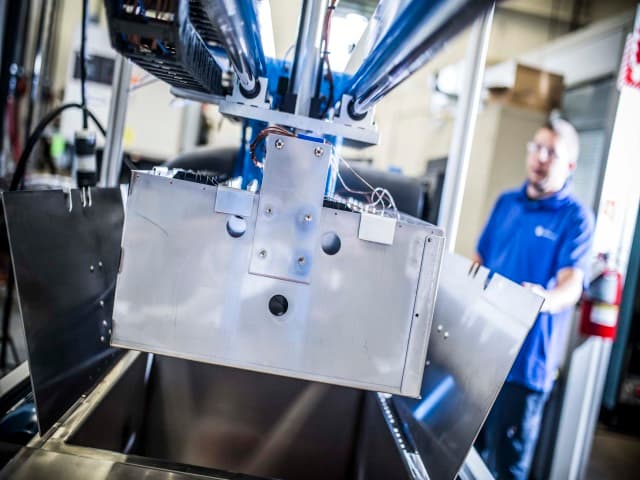
Electric (EV) & Hybrid-Electric (HEV) Vehicle Testing
Accelerate your EV and HEV innovations with Element's comprehensive testing and certification services. Combining automotive heritage with specialized EV expertise, we ensure your components meet safety standards and market demands—faster and with confidence.
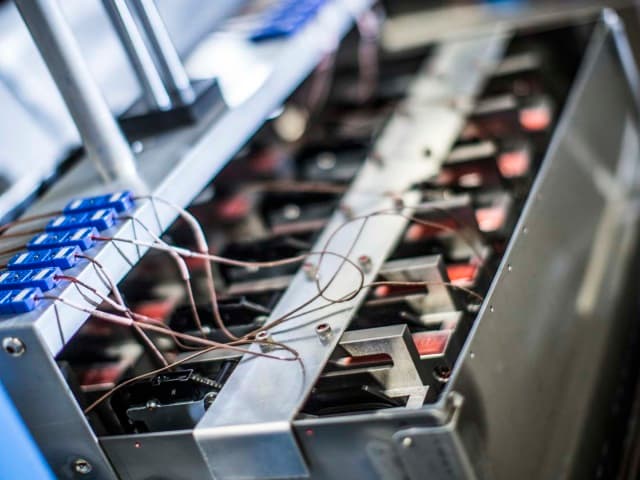
Battery Testing Services
Accelerate your product launch with Element's battery testing services. Superior safety, compliance, and performance data, custom protocols & real-time results. Learn More.
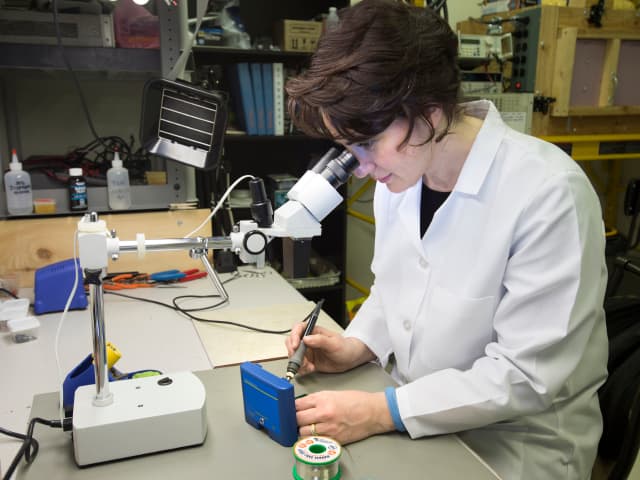
Battery Failure Analysis
Element's comprehensive cell and battery failure analysis identifies failure modes and the root cause of product failure, providing the insights you need to design superior products.
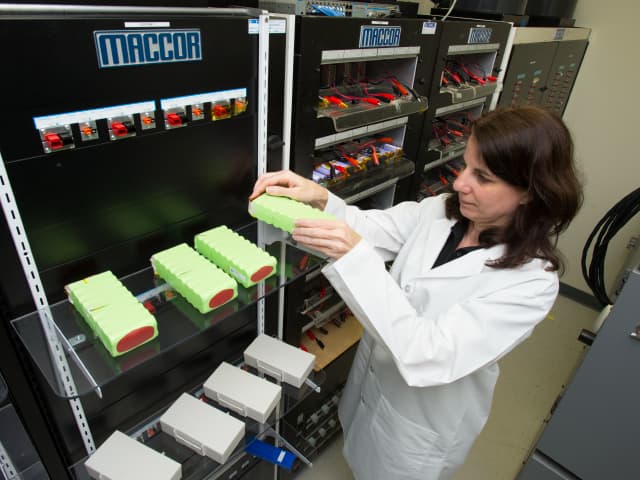
Battery Performance Testing & Competitive Benchmark Testing
Element's battery performance testing and competitive benchmark testing delivers accurate, real-world data on capacity, endurance, and discharge rates to help refine products, reduce risk, and support competitive market positioning.

Vehicle Fluid Systems Testing Services
Element offers comprehensive testing for automotive fluid systems, assessing durability and performance under extreme conditions to help manufacturers enhance reliability and meet industry standards.

RTCA DO-227 Non-Rechargeable Battery Testing
Element's aerospace battery test programs evaluate the fitness and durability of specialized batteries used in business and general aviation as well as EVTOL aircraft.
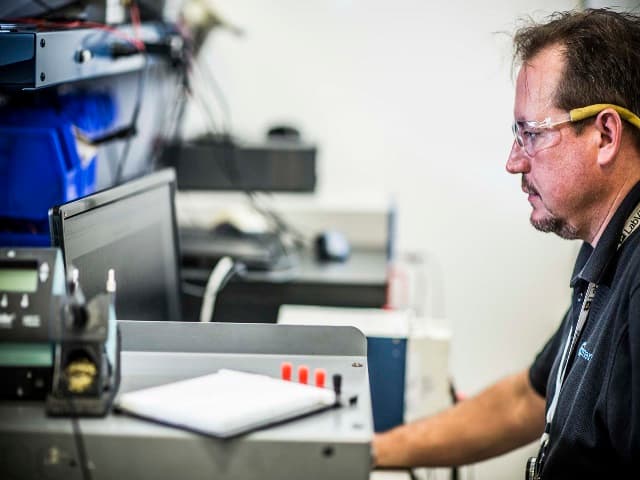
Electronic Component Testing Services
Element provides electronic component testing to help manufacturers verify PCB reliability, prevent failures, and meet compliance standards. Advanced testing solutions support automotive electronics development and production.


